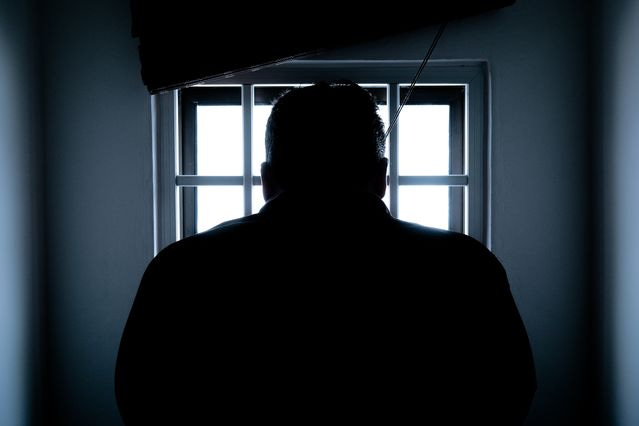He Really Just Spat On Me...
On responding when things don't happen the way they are "supposed to"
Taken from Wikipedia:
“Spitting in public is considered rude and a social taboo in most parts of the world. Spitting upon another person, especially onto the face, is a global sign of anger, hatred, disrespect or contempt.”
I cross-referenced the social acceptance of spitting on people via an article in “The Jerusalem Post”, “The Jewish Virtual Library”, and “MyJewishLearning.com”. Apparently, spitting on people is considered far from a compliment in Jewish culture as well.
Why was I even looking this up, you ask?
Because Jesus was out here spitting on and around people like there was no tomorrow!
To be fair, I did find a few articles, mostly written by Western Christian writers that draw a parallel between Jesus using spittle to heal people and the creation story OR they argue that saliva is the “lubricant of life”. In those narratives, you are meant to visualize Jesus spitting in a grown man’s face with all of the gentleness and care possible as his disciples and any spectators quietly nod their heads in immediate understanding and agreement. I am not here to argue against those assessments made by scholars much more learned than me, no matter the reasoning, I think this method of healing would have been a shock to all involved.
To my knowledge, there are three times that Jesus used spit to heal people. The first is found in Mark 7 when Jesus heals a deaf and mute man by giving him what resembles a “wet willy”. He puts his fingers in the man’s ears then spit on his hands and touches the man’s tongue. The man leaves healed, now able to both hear and speak.
In my opinion, the second occurrence was the most aggressive of all. In Mark 8, we see that Jesus heals a blind man in Bethsaida by directly spitting into his eyes and rubbing it in with his hands. A man who had been blind most of his life was now able to see once again.
Lastly, in John 9 we read of the most famous spit-related healing where Jesus heals a man in Jerusalem who was born blind by spitting into the dirt and rubbing the self-made mud into his eyes. This man who had never seen anything his entire life was able to see perfectly from that moment on.
My intention here is not to question what Jesus did but to stand in awe of the person doing the healing and the ones being healed. I ask myself one question:
If I needed a miracle, would I be ok with Jesus spitting in my face to make it happen?
In the Old Testament of the Bible, one of the most compelling stories is found in 2 Kings 5 which tells of the healing of Naaman. From what we know, Naaman was the highest-ranking general of the army within his nation. By all accounts, he was well respected, well taken care of, and pretty well off. According to this story, he contracts leprosy, which is essentially a death sentence, and is desperate to find a cure before it’s too late.
He is told of a prophet named Elisha from a neighboring allied country who could possibly heal him and decides to visit him. After being strongly compelled by his nation’s government, Elisha decides to help Naaman but is determined to not expend any more effort on the endeavor than he has to. Naaman comes to Elisha’s home with his entourage in tow, and instead of walking outside to acknowledge the general himself, he sends out his assistant with instructions to simply dip seven times in the dirtiest body of water in the area for his healing.
Long story short, Naaman leaves in a rage insulted that he wasn’t even worth a face-to-face conversation to Elisha and doubly insulted by the method provided for his healing. After some convincing, Naaman does as he was instructed and finds himself fully cured.
If I am honest with you, I have probably been Naaman several times in my life. I have likely walked away from a cure for my malady because I didn’t like the way the solution was given to me.
How many times have I missed out on something life-changing because I felt disrespected?
“And blessed is the one who is not offended by me” - Matthew 11:6
These were the words Jesus spoke via messenger to John The Baptist while the latter was in prison and near execution.
John sent two of his disciples to Jesus because he found himself rotting in jail and likely discouraged that this was the fruit of a life spent “preparing the way of the Lord”. He instructed his disciples to go to Jesus and ask “Hey dude, are you the one or should we be looking for someone else?” Keep in mind, this line of questioning came after he had already proclaimed Jesus as the Messiah and publicly baptized him after saying that he was unworthy to even tie Jesus’ shoes. He found himself in jail under the threat of death and his certainty was beginning to be overcome by doubt.
Jesus knew that John the Baptist was extremely familiar with the words from earlier prophets. Jesus knew that John would often quote Isaiah and Malachi when he spoke. Isaiah would write about the Messiah, noting that when He came he would “cause the blind to see”, “open the eyes of the blind”, “proclaim good news to those that are poor”, and “free the captives from prison, releasing those who sit in dark dungeons”.
This is why when Jesus tells John’s messengers “Go back and report to John what you hear and see: The blind receive sight, the lame walk, those who have leprosy are cleansed, the deaf hear, the dead are raised, and the good news is proclaimed to the poor.” There is one significant omission; they are not telling John that the prisoner will be freed. Jesus knew this when He said it. John knew this when He heard it.
“And blessed is the one who is not offended by me”.
Can I be ok if everyone else gets what they need and want, but I don’t? Will I choose to not be offended by God when my hope remains unfulfilled?
These are the questions that I have to ask myself. These are the questions that I would challenge you to ask yourself.
There are often good answers on the other side of uncomfortable questions.
If you appreciated this post, try one of these…
Sitting Shiva
In Jewish culture, there is a practice of grief observance following a death called “sitting shiva”. It is a week-long mourning period that typically occurs after burial and is meant to provide a time and space for spiritual and emotional healing. During this time, the mourner will sit down for these seven days, sometimes with other mourners or visited …
Even the Dodge Challenger loses to Atlanta Traffic...
In a sea of brake lights and exhaust fumes, I found myself stuck in the notorious Atlanta rush hour traffic. It was the kind of gridlock that makes you question every life decision that led you to this moment. As I sat there, resigned to my vehicular fate, an all-black Dodge Challenger decided to take matters into its own hands.







